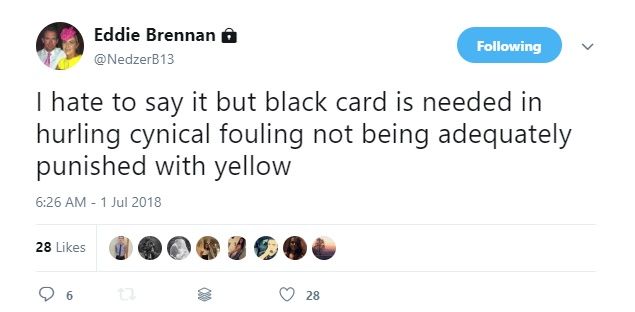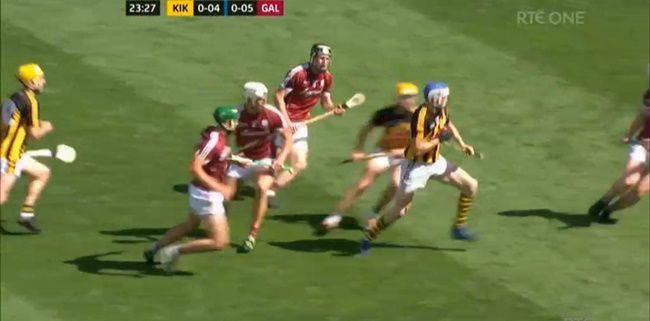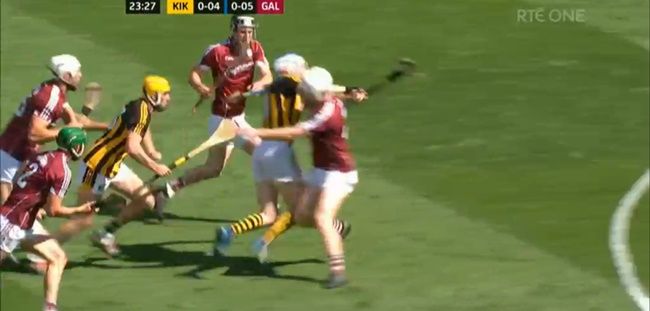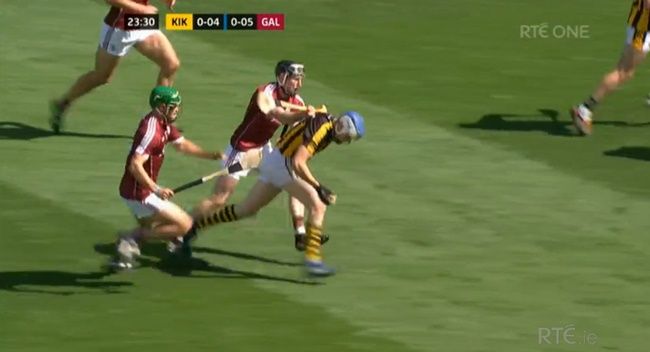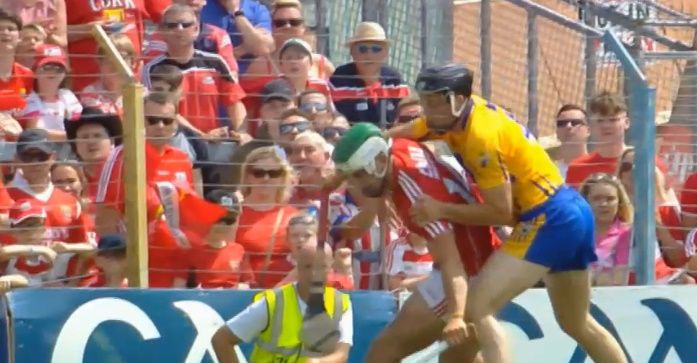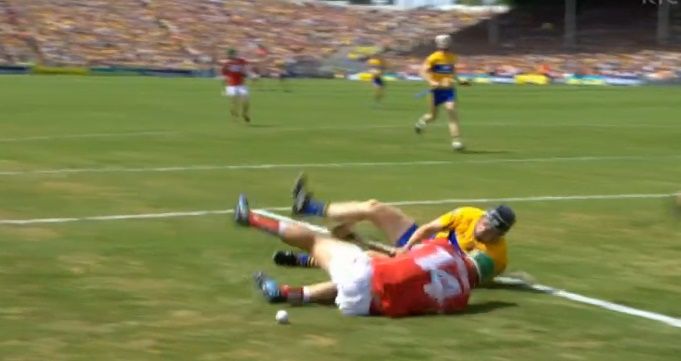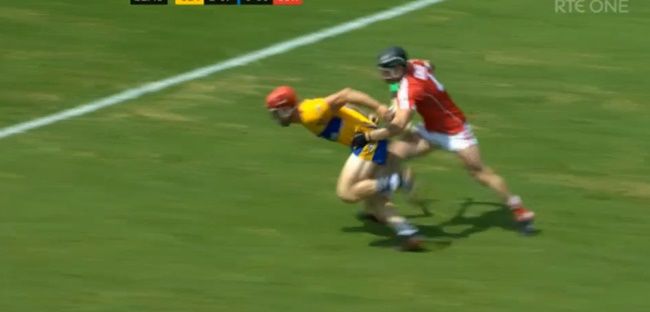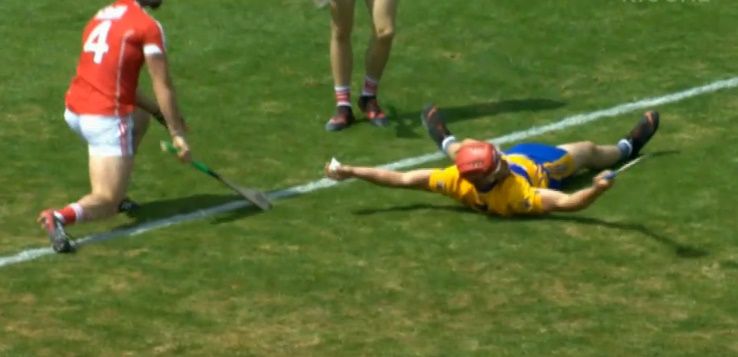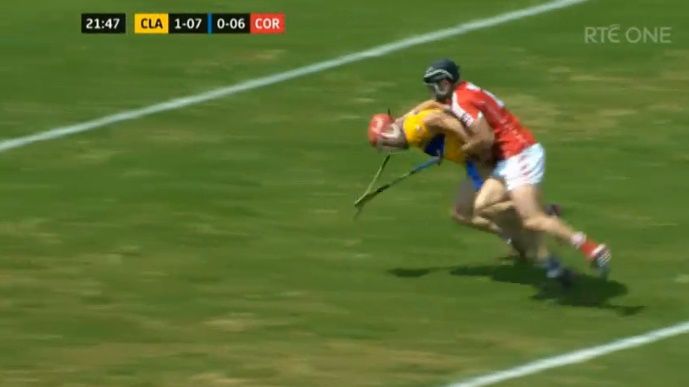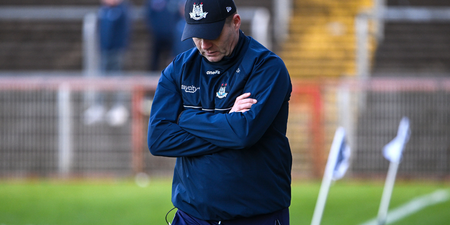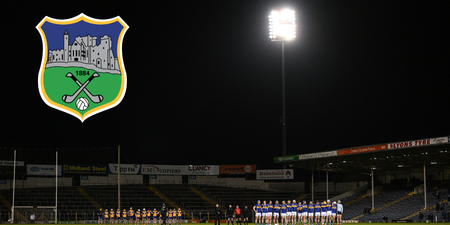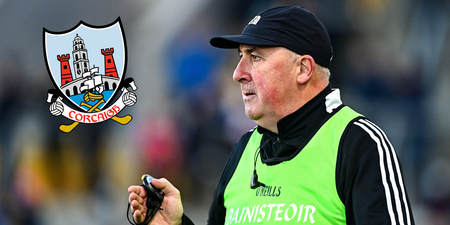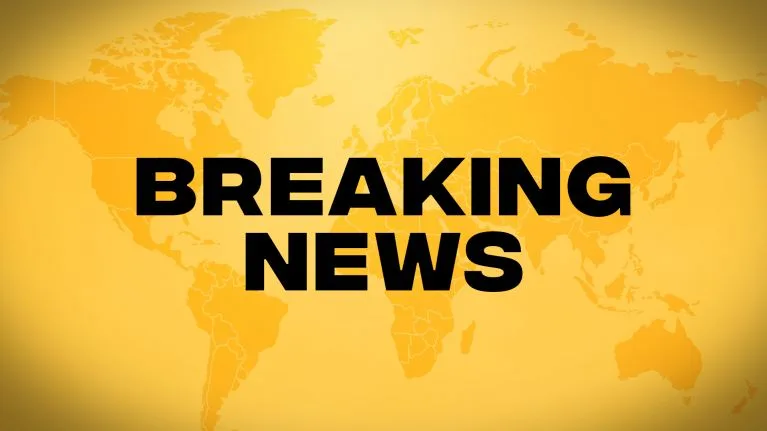We were treated to an absolute feast of hurling at the weekend…again.
Gaelic football has been in hurling’s shadow all year so far and if you watched the Leinster and Munster deciders on Sunday it was crystal clear why.
That might change when the Super 8s roll up but as of yet, hurling has been the only show in town.
The fastest game on the planet was showed off in two extremely different ways in the respective provincial deciders but real hurling folk will have enjoyed the pair of them equally.
Where Cork and Clare was a free-flowing score-fest with forwards running riot, Kilkenny Galway was exactly the opposite with the defenders lording it all day long.
The Kilkenny back men gave an exhibition in hurling’s most beautiful skill with Paddy Deegan, Joey Holden, Padraig Walsh and Cillian Buckley all dominating the skies.
Down the other end, Padraig Mannion and Daithí Burke were just as emphatic in the air as the attackers were horsed out of the front and into the back seat in Croker.
They were absolutely loving it https://t.co/ly2Dsz46tV
— GAA JOE (@GAA__JOE) July 2, 2018
Hurling folk are a passionate folk and they pride themselves on the free-flowing nature of their game. They boast about the game’s traditional values and that’s why when a man like Derek McGrath introduced a sweeper system last year it was met with such opposition.
While gaelic football turned to screens and blanket defences, hurling stayed loyal to the 15 on 15 shootouts as every day out just involved two teams going at it hard and going at it fair.
There was no such thing as cynicism in hurling. There was absolutely no need for a black card because where football was dominated by dirty players who would do anything to win, hurling was on a different level.
There’s no real reason for this but that’s just the way it was.
Legendary Kilkenny attacker Eddie Brennan asked the question on Sunday as a number of incidents from the Munster and Leinster finals frustrated him.
Brennan was talking about the cynical fouls that took place during the two finals.
The likes of this one on TJ Reid in the first half of the Leinster final.
1 Hanbury and Mannion on Reid
Reid catches a puck-out and turns towards goal.
Galway defender John Hanbury makes no attempt to play the ball, making sure he gave away a free rather than letting Reid run through on goal.
Advantage accrued but after Reid burst past Hanbury, he was met with another intentional foul by Padraig Mannion.
The same happened in Munster.
2 Jack Browne on Shane Kingston
With Shane Kingston bearing down on goal, Jack Browne played the percentages by bringing the Cork man to ground with an aggressive arm high around both shoulders.
3 Colm Spillane on John Conlon
Similarly, Colm Spillane made no attempt to play the ball after John Conlon won one over him and headed for goal. The Cork defender knew what he was doing when he dragged the Clare forward to ground.
Spillane was doing whatever it took to stop him. You can’t blame him for that, he was just taking advantage of the rules.
Spillane received a yellow card for his troubles but sure that’s better than conceding a goal.
Those are professional fouls, but if players knew they were going to get the line, their thinking would surely be a little bit more honest.
The black card hasn’t solved all of football’s ills but that’s mainly because it covers too broad a range of offences. Rather than just focusing on the main blight, the deliberate, professional foul – it involves mouthing at referees and off the ball trips or kicks at the other end of the pitch. In fairness, these don’t really deserve the line and this just creates confusion. They aren’t the main problem anyway.
It wouldn’t be too difficult to implement if we just focused on the fouls like those above, because Reid, Conlon and Kingston could all have been denied goals there.

